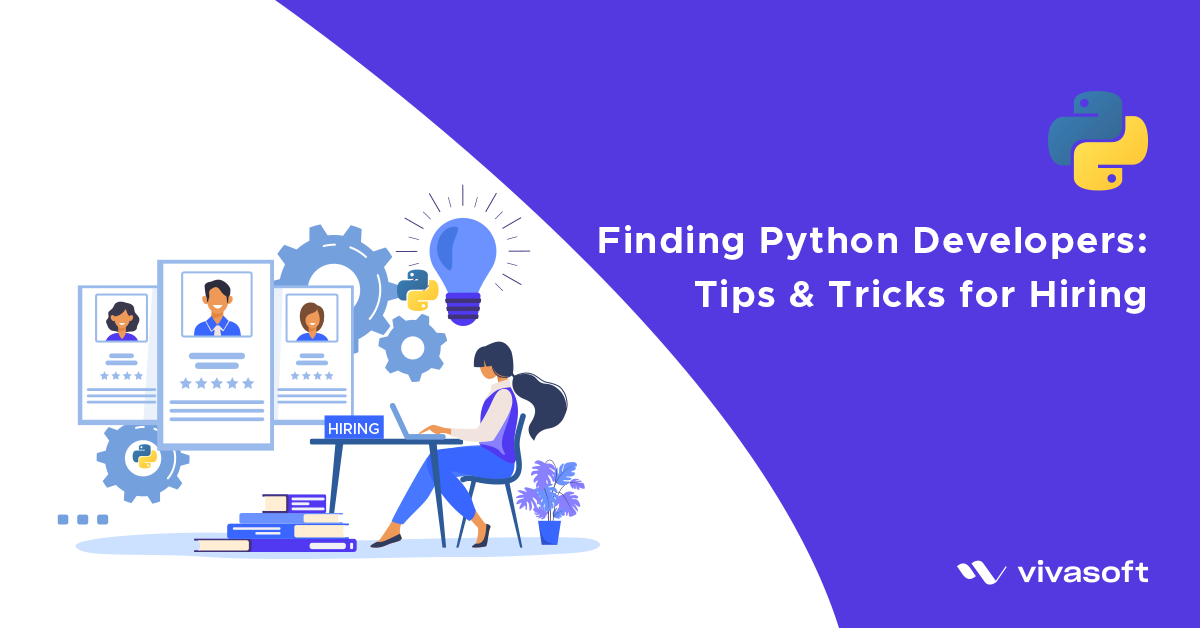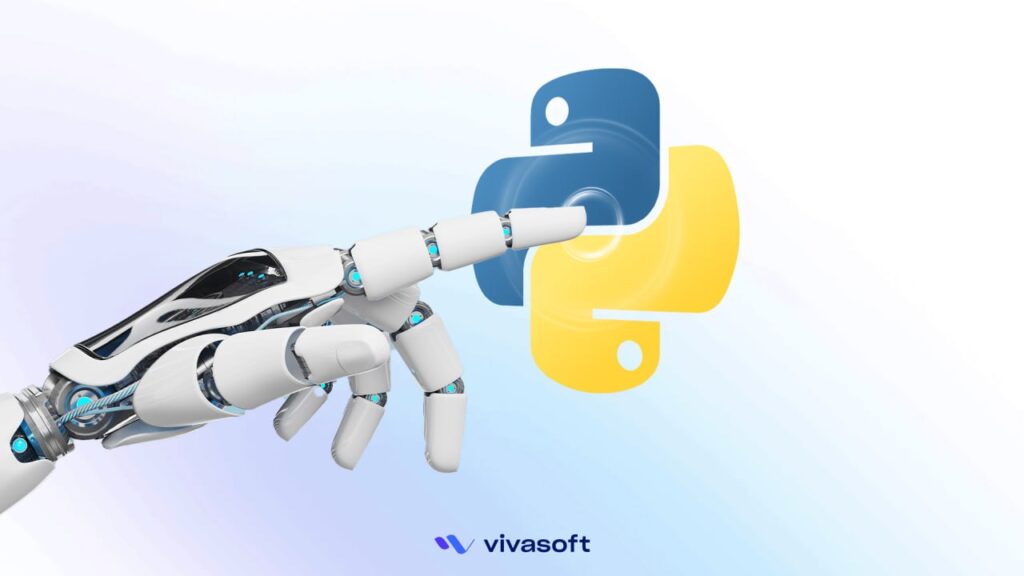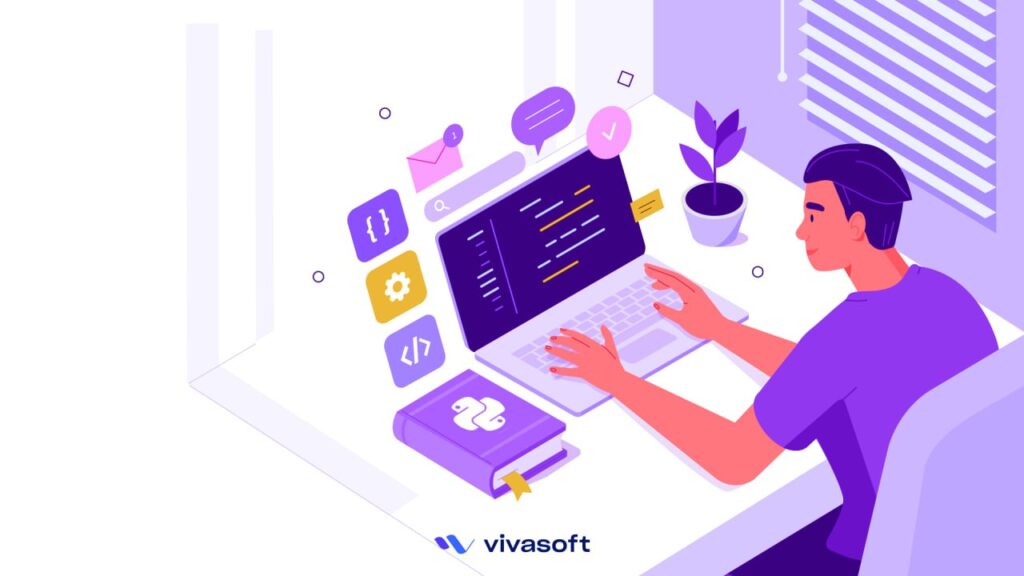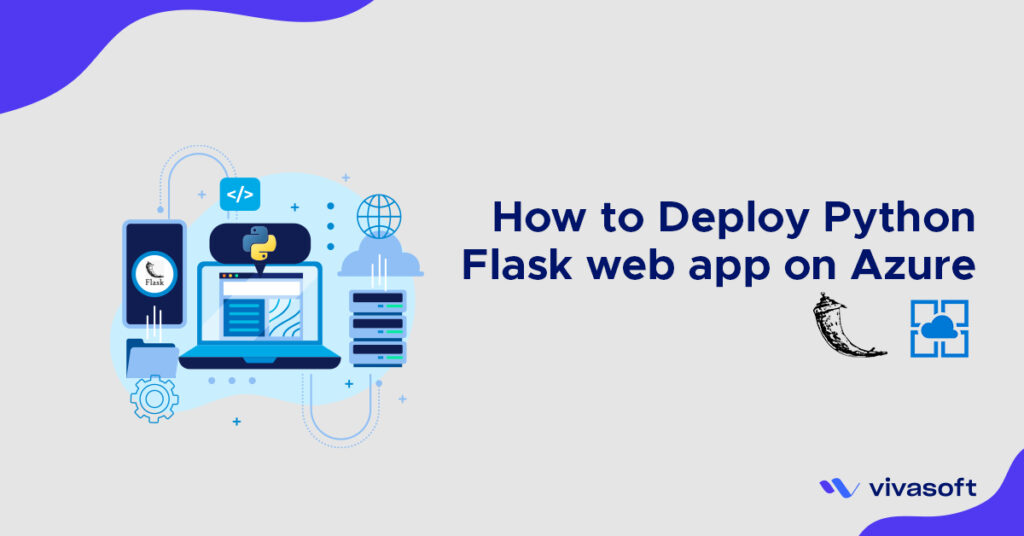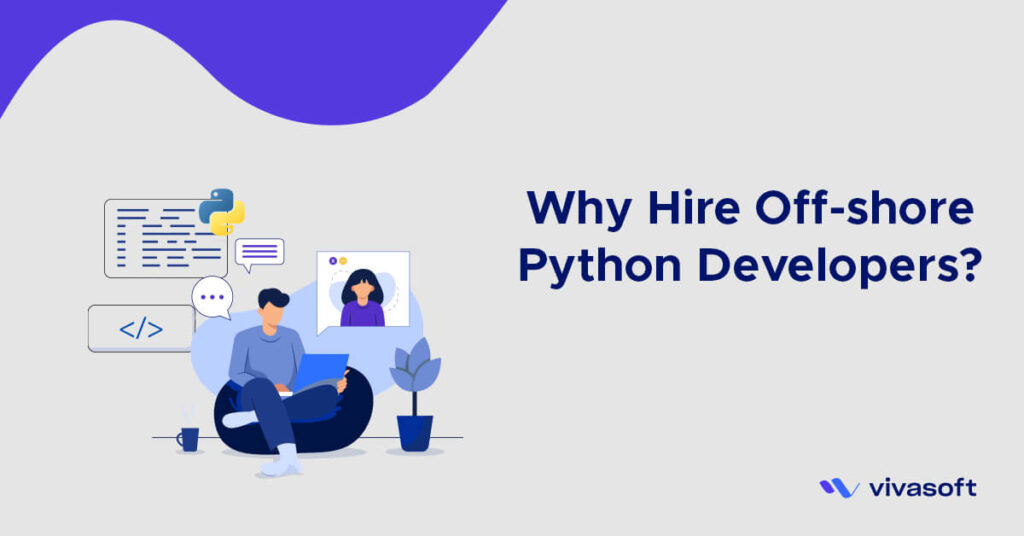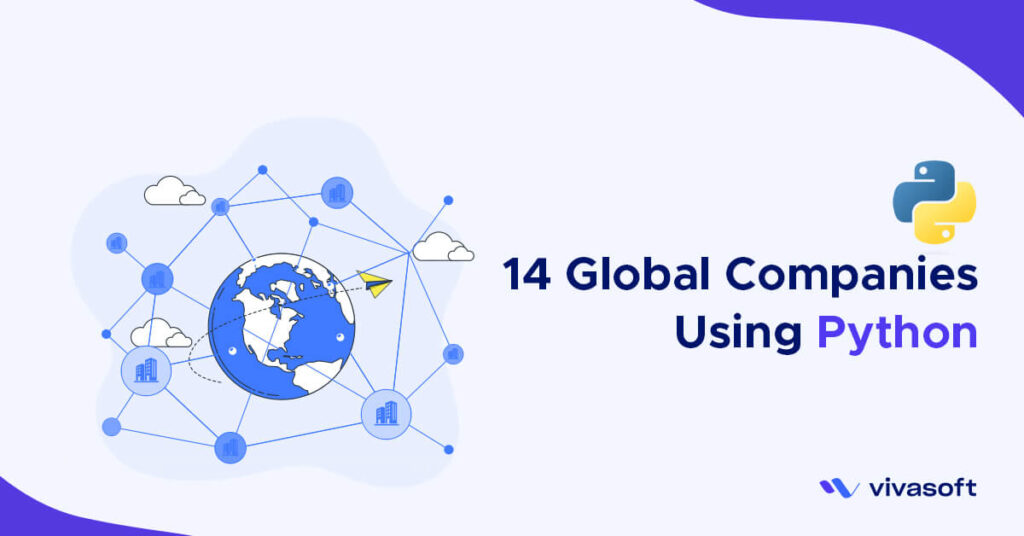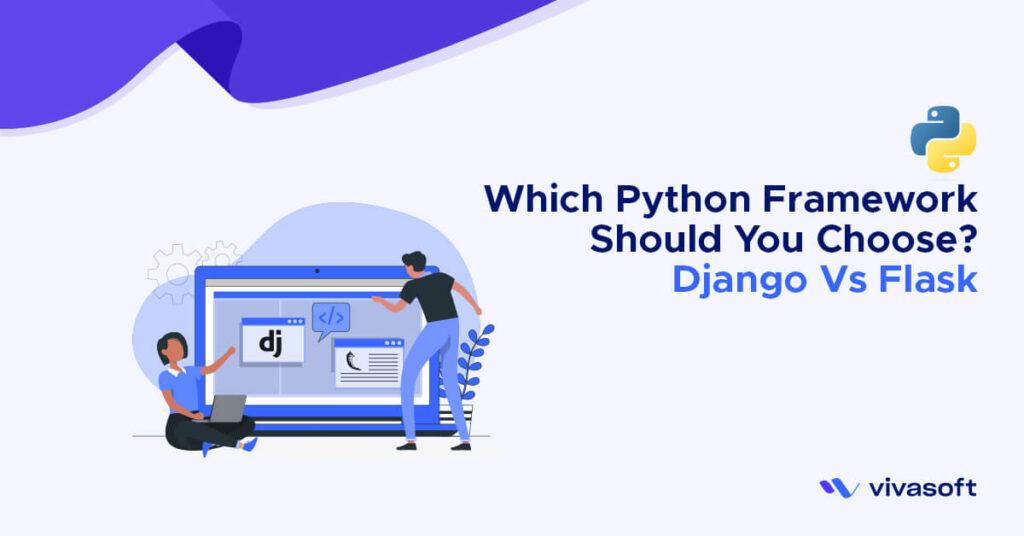If you are a Python developer seeking a job position as a “Software Engineer” or if you want to hire a dedicated Python developer for your organization, you may be wondering what qualifications and criteria would be optimal to apply for or hire for the position. Python is one of the most popular programming languages among developers and has been used in various industries such as finance, artificial intelligence, big data, and many more. It is a high-level, interpreted language that emphasizes readability, simplicity, and modularity.
This article will provide you with a complete recruiter guide about hiring Python developers. If you are a job candidate, the post will help you to set your Python learning roadmap for securing a job.
Python developers are highly versatile and can serve multi-purpose in a company. Python has frameworks for every aspect of requirements. Whether your requirement is front-end or back-end, desktop or web, Python has just the right framework and a huge developer community for that framework.
What is Python? Why is It Relevant?
Python is a high-level language launched in the late 1980s. It quickly gained popularity due to its simplicity and ease of use. The specialty of Python is that the code is closer to human natural language compared to any other programming language of that time. A 60-line of C/C++ code could be written in Python in a couple of lines.
Python has a large standard library and is used for a wide range of applications, including web development, data analysis, scientific computing, artificial intelligence, and machine learning. Its popularity is due to the growth of these fields and the ease with which it can be used to work with them.
What are the Advantages of Hiring Python Developers?
Before diving into the guidelines for hiring Python developers, let’s explore the extra benefits you will unlock by deciding to hire a Python developer for your purpose.
Cost-effective
Despite the high demand for Python developers, the number of Python developers has been increasing exponentially for the past few years. This means that you won’t have to settle for a substandard developer, and you can negotiate a competitive salary with multiple candidates.
Versatility
Python is versatile and can be used for various purposes. It is used for data science, web development, artificial intelligence, machine learning, scientific computing, game development, desktop application development, and more. Python has a vast range of libraries and frameworks that can be used for different projects. Therefore, your Python developer can be your one-stop solution for all your projects.
Easy Replacement
Python’s vast developer base makes it an ideal choice for businesses looking to hire Python developers. In the event that a Python developer does leave, it’s reassuring to know that there are numerous qualified Python developers available in the market, making the replacement process relatively straightforward.
What Skill Set is Typically Expected from a Python Developer?
If you are a non-technical person unfamiliar with Python and are interested in hiring Python developers but unsure how to evaluate potential developers, this section can be useful for you. If you are someone who is looking for a job as a Python Developer, you can assess yourself with the following parameters and get over your lackings.
Let’s explore some basic skills of a Python developer:
Proficiency in Data Structures and Algorithms (DSA)
If an applicant is proficient in programming all types of data structures and algorithms, they are suitable for the position of a Python developer. This applies to any developer position, not just Python.
Data structures and algorithms are essential components of any software or website. Having proficiency in DSA enables one to learn any Python framework or library in a short period. They can write code with efficient time complexity and memory complexity, which is crucial for the performance of a website or application.
Proficiency in Core Python
It is essential to have a strong foundation in core Python, including data types, loops, control structures, OOP concepts, file handling, and exceptions. A developer should be proficient in writing Pythonic code, which follows the conventions of the language and community.
Knowledge and Understanding of Python Libraries
Python has a vast collection of libraries and modules that offer solutions for various tasks, including data analysis, scientific computing, machine learning, and more. A good Python developer should have knowledge of some of the popular libraries and frameworks and know when to use them. Here are some of the commonly used Python libraries:
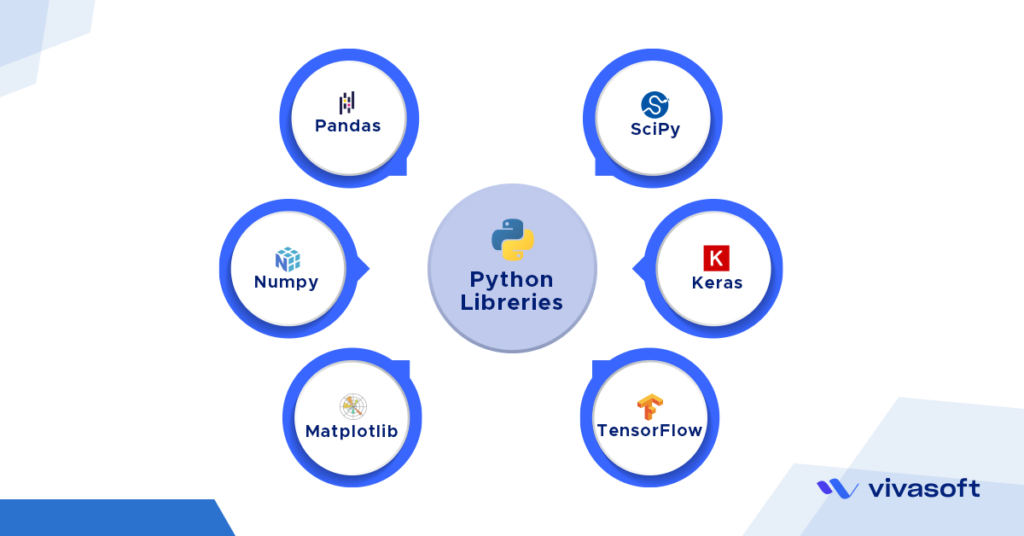
NumPy:
A library for numerical computing in Python, used for performing operations on large arrays and matrices.
Pandas:
A library for data manipulation and analysis, widely used for handling tabular data and time series data.
Matplotlib:
A library for creating static, animated, and interactive visualizations in Python.
SciPy:
A library for scientific and technical computing in Python, offering a range of modules for optimization, integration, interpolation, and more.
TensorFlow:
A popular open-source library for machine learning, used for building and training deep learning models.
Scikit-learn:
A library for machine learning in Python, offering tools for classification, regression, clustering, and more.
Knowledge of Python Frameworks
Having knowledge and understanding of Python frameworks is a must-have for a Python developer. Python frameworks provide developers with a structured way of building applications, handling databases, and managing other components of an application’s backend. Some of the widely used Python frameworks include:
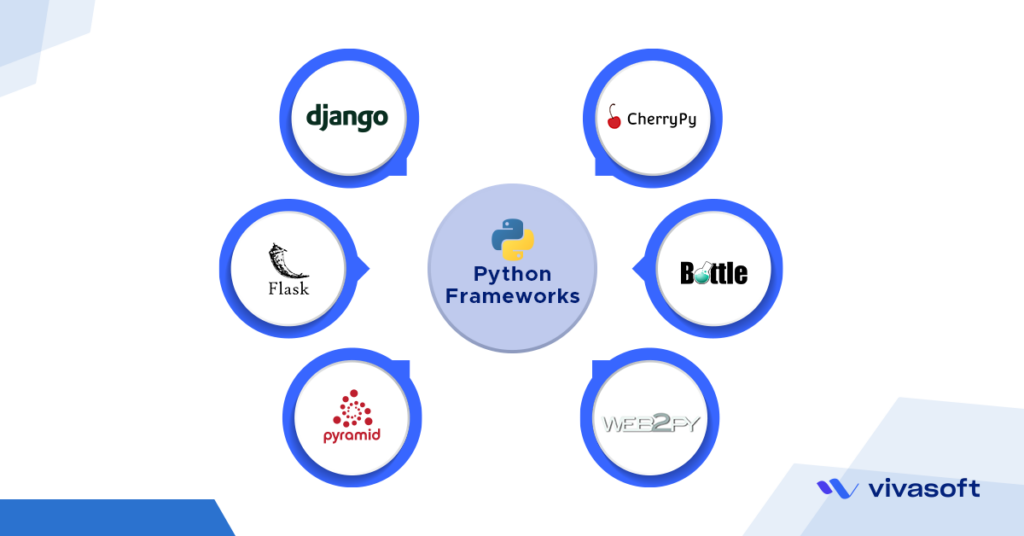
Django:
Django is a high-level Python web framework that follows the model-view-controller (MVC) architecture. It includes built-in features for authentication, URL routing, and database handling, making it a popular choice for building large-scale web applications.
Flask:
Flask is a lightweight Python web framework that offers developers flexibility and control over their web applications. It includes a minimal set of tools for building web applications and can be extended with various third-party libraries.
Matplotlib:
A library for creating static, animated, and interactive visualizations in Python.
Pyramid:
Pyramid is a flexible Python web framework that is suitable for building everything from small web applications to complex enterprise systems. It offers a range of tools and libraries for handling authentication, security, and database integration.
CherryPy:
CherryPy is a minimalist Python web framework that is easy to learn and use. It includes built-in support for handling HTTP requests and responses and can be extended with various plugins and add-ons.
Bottle:
Bottle is a fast and simple Python web framework that includes built-in support for routing, request handling, and template rendering. It is well suited for small web applications and prototyping.
Database and ORM
A qualified python developer should be familiar with one or more database management systems, such as MySQL, PostgreSQL, MongoDB, and SQLite. They should also have experience working with Object-Relational Mapping (ORM) libraries, such as SQLAlchemy, Django ORM, or Peewee.
Testing and Debugging
A python developer should have experience in writing unit tests and integration tests for their code. They should also be familiar with debugging tools and techniques to find and fix errors in their code.
Some widely used Python testing and debugging frameworks and tools include:
unittest:
unittest is a built-in Python module for writing and running unit tests.
pytest:
pytest is a popular Python testing framework that supports unit, functional, and integration testing.
doctest:
doctest is a testing framework that enables developers to write tests in docstrings and run them automatically.
pdb:
pdb is a built-in Python debugger that allows developers to step through code, set breakpoints, and inspect variables.
PyCharm:
This is actually a popular Python IDE that includes built-in testing and debugging tools.
How to Hire A Python Developer: 7 Steps
Step 1: Resume Screening
Review resumes to shortlist candidates with relevant experience in Python, object-oriented programming, web development, and frameworks like Django, Flask, or Pyramid.
Step 2: Technical Screening
Conduct coding assessments to evaluate candidates’ coding skills and knowledge of Python concepts, algorithms, and data structures.
Step 3: Technical Interview
Conduct a technical interview to evaluate candidates’ ability to solve problems, write clean and efficient code, and communicate technical concepts effectively.
Step 4: Project-Based Interview
Provide candidates with a project brief and evaluate their ability to design, develop and deploy a Python-based project.
Step 5: Behavioral Interview
Evaluate candidates’ behavioral competencies such as teamwork, problem-solving, communication, and learning ability.
Step 6: Reference Check
Contact provided references to validate the candidates’ work history and performance.
Step 7: Offer
Present an offer to the selected candidate and negotiate terms of employment.
Of course, the actual selection process may vary depending on the company’s specific needs and priorities.
Looking to hire Python developers?
Finding the right talent for your organization can be a challenging task. It requires a clear understanding of the role’s responsibilities, required skills, and experience. As a recruiter, you can source candidates through job boards, employee referrals, or specialized software outsourcing development companies.
However, hiring Python developers requires a combination of technical knowledge, interpersonal skills, and a clear understanding of your company’s needs. By partnering with the right software development outsourcing company or hiring platform, you can find and onboard the top talent you need to succeed.
Here are our recommendations:
Vivasoft

When it comes to hiring Python developers, Vivasoft Ltd is a leading software development outsourcing company that provides top-notch Python development services. With over 180 experienced engineers, Vivasoft understands the significance of agile processes and employs cutting-edge Python frameworks to provide innovative software solutions that maximize customer value.
Turing.com
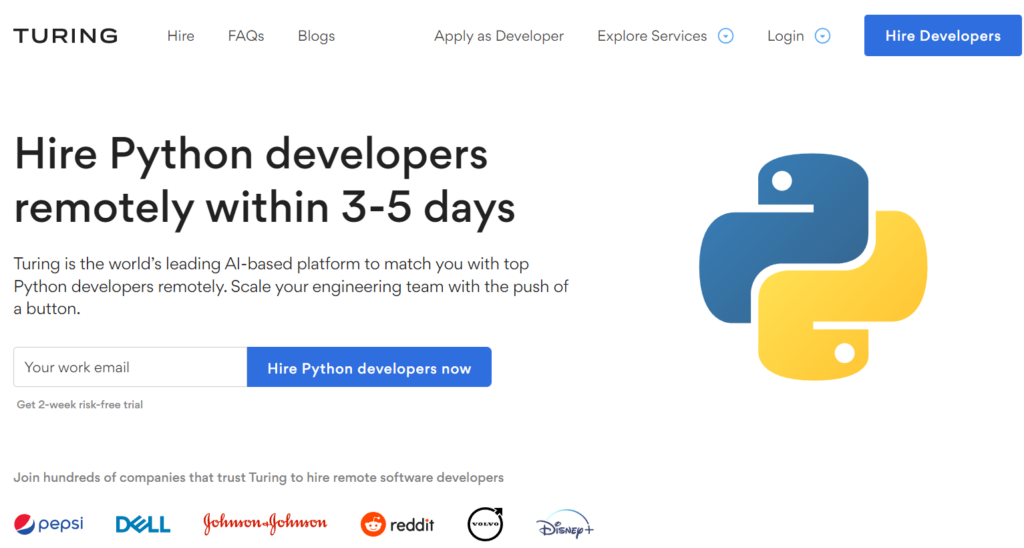
Another reliable platform for hiring remote Python developers is Turing.com. Turing developers are recruited after a series of rigorous tests, scrutinization, and coding interviews, and they are chosen only after passing a set of tough examinations that assess their talents for a Silicon Valley standard. Moreover, Turing is pay-as-you-go, so you will only have to pay the developer hourly for your project duration.
Trio.dev
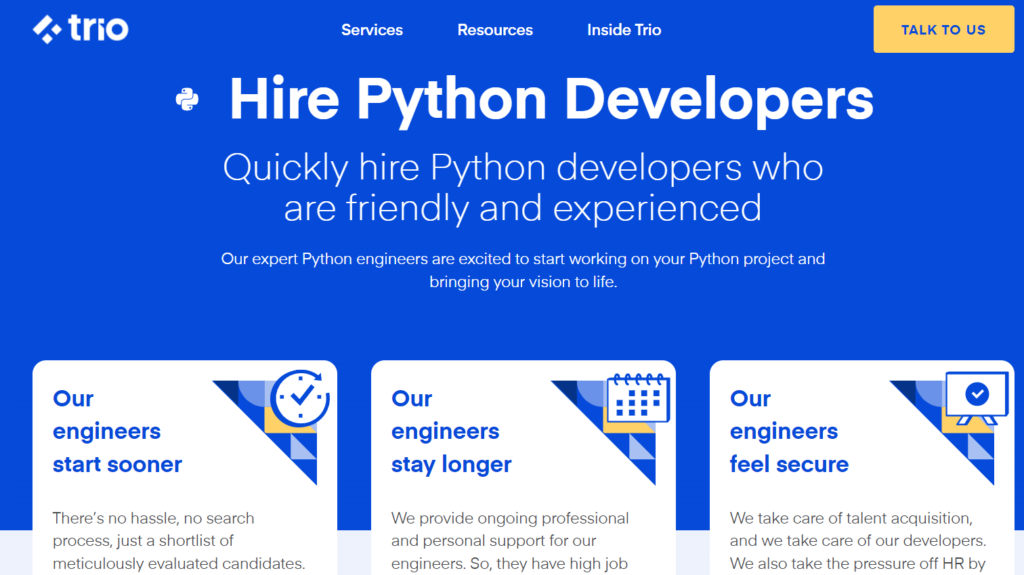
Trio.dev is another great option for finding excellent Python developers for your company. They provide highly competent and adaptable remote developers after verifying their skills through screening and background checks, remote app development tasks, technical interviews, and cultural fit interviews.
Final Thoughts
That’s all for today. Python developers are highly versatile, easy to find, and in high demand in the tech industry.
By following the guidelines mentioned above, you can find the right Python developer for your organization or get yourself ready for a job as a Python developer.




